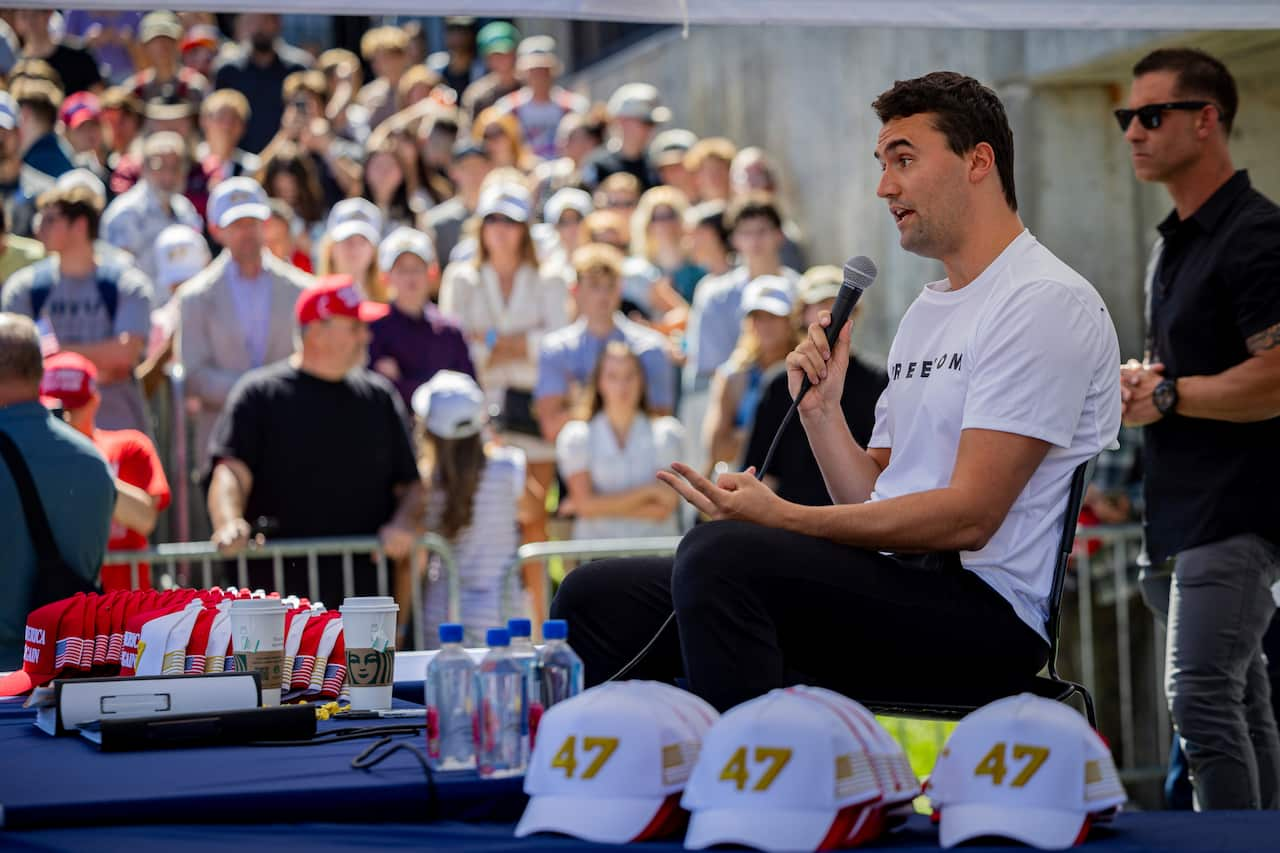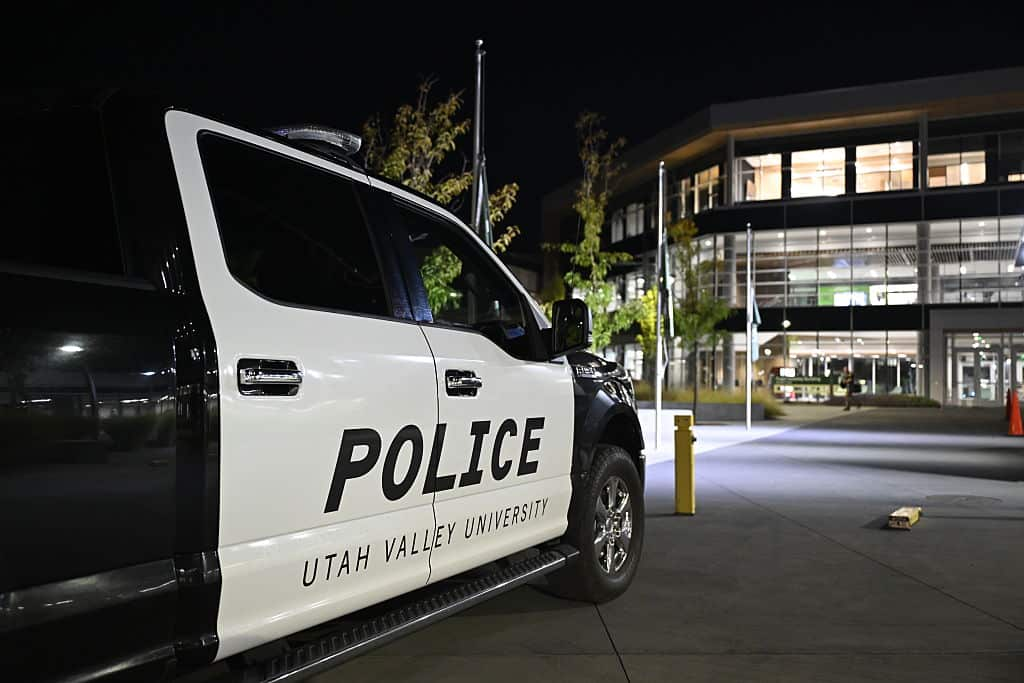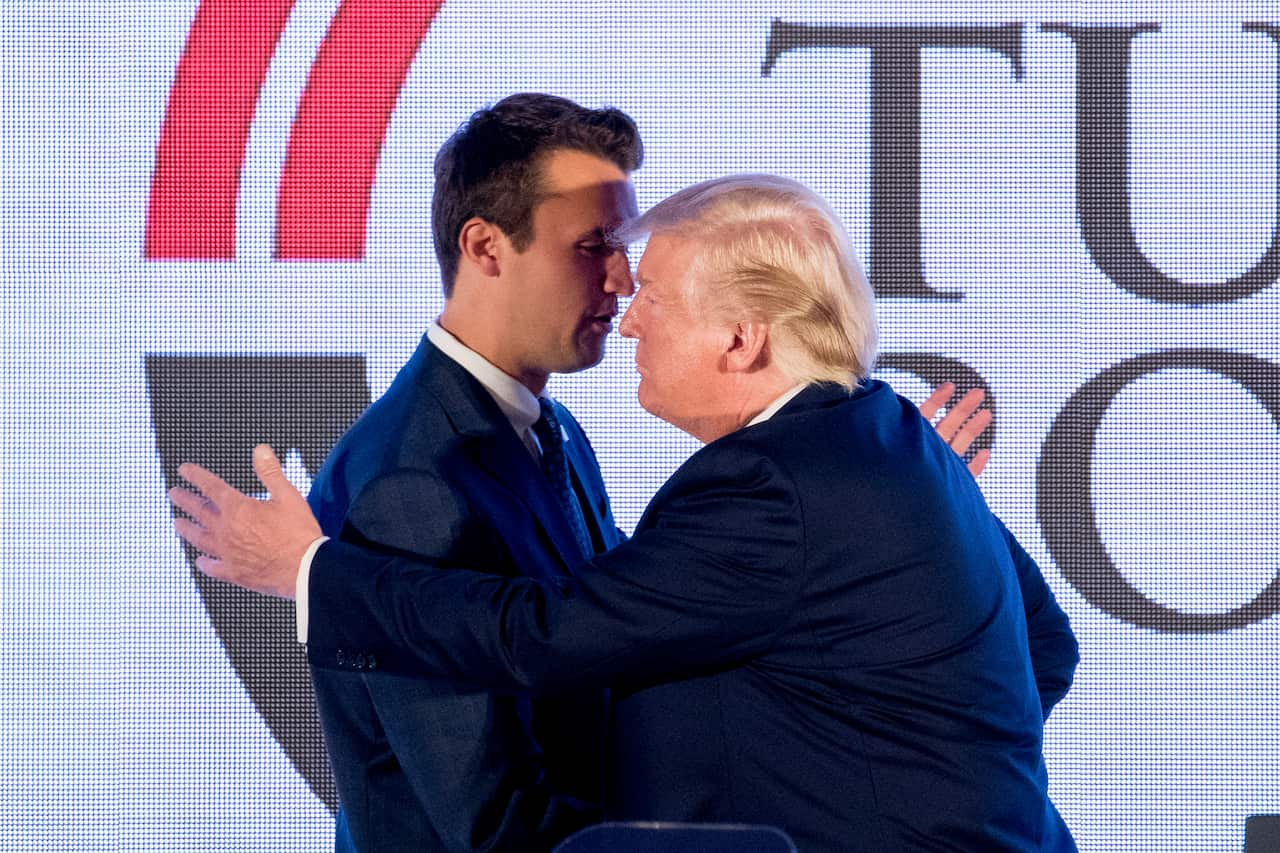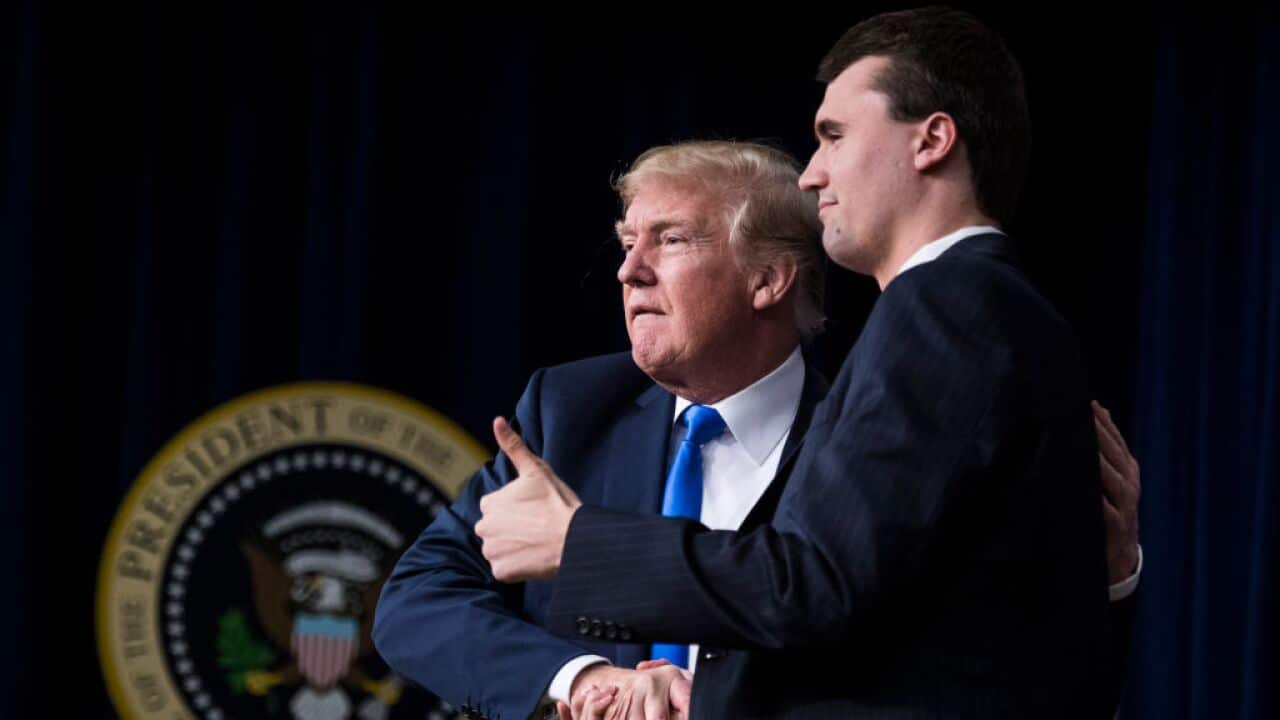United States President Donald Trump has blamed the "radical left" for the killing of right-wing activist and political ally Charlie Kirk, who was fatally shot in the neck at an event at a Utah university.
In an Oval Office address, Trump said he was "filled with grief and anger" over the shooting, which he described as a "dark moment" for America.
“For years those on the radical left have compared wonderful Americans like Charlie to Nazis and the world’s worst mass murderers and criminals. This kind of rhetoric is directly responsible for the terrorism that we’re seeing in our country today and it must stop right now,” Trump said.
“My administration will find each and every one of those who contributed to this atrocity, and to other political violence, including the organisations that fund it and support it, as well as those who go after our judges, law enforcement officials and everyone else who brings order to our country.”

The president listed several other incidents of what he described as "radical left political violence", including the killing of UnitedHealth Group CEO Brian Thompson, the 2017 shooting of Republican congressman Steve Scalise and the attempt on his own life in Pennsylvania last year.
Trump did not mention violence against Democrats, such as the killings of Minnesota state politician Melissa Hortman and her husband in June.
Authorities have not yet publicly identified a suspect in Kirk's death and a manhunt was ongoing on Thursday afternoon.
Earlier in the day, FBI director Kash Patel said an unnamed "subject" had been detained for questioning and subsequently released.
"Our investigation continues and we will continue to release information in interest of transparency," he wrote on social media.
Utah governor Spencer Cox had said at an earlier press conference that police were interviewing a "person of interest" without providing further details about the person's identity.
At the same press conference, however, Beau Mason, the Utah public safety department commissioner, said the shooter remained "at large".
Cellphone video clips of the incident circulating on social media showed Kirk, 31, addressing a large outdoor crowd at the school's campus in Orem, Utah, when a gunshot rang out. Kirk moved his hand toward his neck as he fell off his chair, sending the attendees running.
In another clip, blood can be seen gushing from Kirk's neck immediately after the shot.
The suspect likely fired from a rooftop, authorities said, adding there were about 3,000 people gathered at the event.
Jeff Long, chief of the university police department, said he had six officers working the event and that he coordinated with the head of Kirk's private security team, which was also on site.
Trump ordered all government US flags flown at half-staff until Monday AEST in Kirk's honour.
"The Great, and even Legendary, Charlie Kirk, is dead. No-one understood or had the Heart of the Youth in the United States of America better than Charlie. He was loved and admired by ALL, especially me, and now, he is no longer with us," Trump wrote on social media.

The killing was the latest in a series of attacks on US political figures, including two assassination attempts of Trump last year, that have underscored a sharp rise in political violence.
"This is a dark day for our state, it's a tragic day for our nation," Cox said at the press conference. "I want to be very clear that this is a political assassination."
Kirk's appearance at the university event was the first in a planned 15-event "American Comeback Tour" at universities across the country. He often used such events, which typically drew large crowds of students, to invite attendees to debate him live.
Seconds before he was shot, Kirk was being questioned by an audience member about gun violence, according to multiple videos of the event posted online.
"Do you know how many mass shooters there have been in America in the last 10 years?" Kirk was asked.
He responded: "Counting or not counting gang violence?" He was shot moments later.
Who was Charlie Kirk?
Kirk and the group he co-founded, Turning Point USA, the largest conservative youth organisation in the country, played a key role in driving young voter support for Trump in November 2024.
After winning his second presidential term, Trump credited Kirk for mobilising younger voters and voters of colour in support of his campaign.
"You had Turning Point's grassroots armies," Trump said at a rally in Phoenix in December. "It's not my victory, it's your victory."

Kirk had 5.3 million followers on X and hosted a popular podcast and radio program, The Charlie Kirk Show. He had also recently co-hosted Fox & Friends on Fox News.
He was part of an ecosystem of pro-Trump conservative influencers — including Jack Posobiec, Laura Loomer, Candace Owens and others — who helped to amplify the president's agenda.
Kirk frequently attacked mainstream media and engaged in culture war issues around race, gender and immigration, often in a provocative style.
Originally from the suburbs of Chicago, Kirk did not graduate from university but began dedicating himself to activism as a teenager.
His strengths soon made him a go-to figure in Republican circles and by 2016 he was serving as a personal assistant to Trump's son, Donald Trump Jr.
Kirk's conservative ideology was closely aligned with Trump: he backed the US president's false claims of fraud when he lost the 2020 presidential election and used his heavyweight influence to lash out at migrants and transgender people.
Politically motivated violence on the rise in US
While the motive for the shooting is unknown, the US is undergoing its most sustained period of political violence since the 1970s. Reuters has documented more than 300 cases of politically motivated violent acts since supporters of Trump attacked the US Capitol on 6 January 2021.
In July 2024, Trump was grazed by a gunman's bullet during a campaign event in Butler, Pennsylvania. A second assassination attempt two months later was foiled by federal agents.
In April, an arsonist broke into Pennsylvania governor Josh Shapiro's residence and set it on fire while the family was inside.
Earlier this year, a gunman posing as a police officer in Minnesota murdered state politician Melissa Hortman and her husband and shot senator John Hoffman and his wife. And in Boulder, Colorado, a man used a makeshift flamethrower and Molotov cocktails to attack a solidarity event for Israeli hostages, killing one woman and injuring at least six more.
In 2022, a man broke into Democratic then-House speaker Nancy Pelosi's home and bludgeoned her husband with a hammer, leaving him with skull fractures and other injuries. In 2020, a group of right-wing militia members plotted unsuccessfully to kidnap Michigan governor Gretchen Whitmer, a Democrat.
Both Republican and Democratic politicians expressed support for Kirk following the shooting.
"Political violence is NEVER acceptable," Hakeem Jeffries, the Democratic leader in the US House of Representatives, said on X. "My thoughts and prayers are with Charlie Kirk and his family."
Republican house speaker Mike Johnson wrote on X: "Please join us in praying for our good friend, Charlie Kirk."
When asked about Kirk's death, Australia's acting Prime Minister Richard Marles told ABC Radio National on Thursday morning: "There is no place for political violence."
"Our thoughts are very much with Charlie Kirk's family, but in our societies, we need to see peaceful discourse as being the way in which we deal with political issues, and political violence absolutely has no place at all.
"I think we are very lucky in Australia to have a culture where we do debate issues through, and we do so by and large in a civil way."
For the latest from SBS News, download our app and subscribe to our newsletter.

